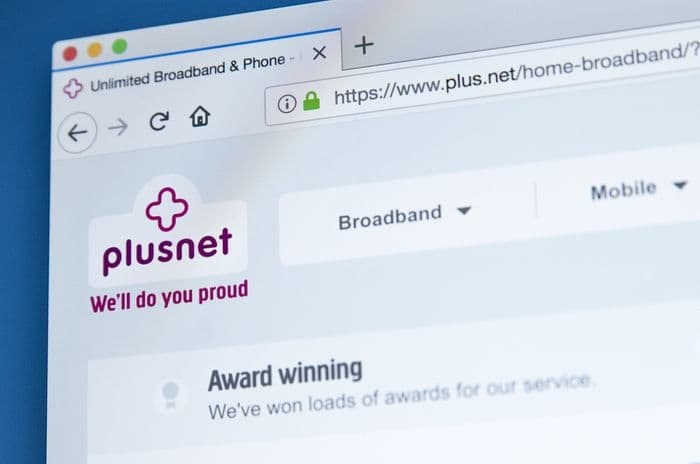Home > Broadband > News > Banned Plusnet ad is tip of broadband's confusing iceberg
Banned Plusnet ad is tip of broadband's confusing iceberg
THE Advertising Standards Authority (ASA) have ordered Plusnet not to use two radio ads again, after they found that these ads failed to present material information in a "clear and intelligible manner".

Responding to a complaint, ASA concluded that both ads were "misleading", largely because both involved terms and conditions being spoken too quickly to be understood.
Plusnet rejected the complaint, arguing that the terms and conditions were "spoken at an acceptable speed", yet ASA ultimately decided that they made it hard for listeners to pick up on "material information that consumers required in order to make an informed decision".
And while this decision is focused solely on Plusnet's advertising, it's once again another example of how broadband advertising and marketing is often too complex for many customers to understand.
The crime
No longer 'truly' unlimited broadband
Plusnet Mobile arriving in November
Free fibre for six months
Plusnet's offences date back to March 3rd of this year, when two ads were first broadcast on radio.
The first related to an unlimited broadband package Plusnet were then offering, while the second was marketing a mobile phone offer.
Both included terms and conditions, yet these "were spoken at a much faster pace compared to the rest of the ad".
More seriously, in both cases they contained information revealing that prices could change during each respective contract, something which potential customers would most likely want and need to know.
With the broadband ad, the terms in fact "indicated that the monthly price could change during the term of the contract, and that the offer was only available to new customers in 'low cost areas'".
And given that such info is highly relevant to anyone wanting to ensure that they choose the best possible broadband package for them, the fact that it had "not been presented in a clear and intelligible manner" led ASA to conclude that "the ad was misleading".
Hence, they ruled that the "ads must not appear again in their current forms". They also told "Plusnet plc to ensure that significant limitations and material information were presented in a clear and intelligible manner in future ads".
A history of misleading customers
Such a ruling is somewhat embarrassing for Plusnet, not least because they take pride in being a "trustworthy" brand. Indeed, their website proudly proclaims that they've "won loads of awards for our service".
Yet ASA's judgement is also another blow for the notion that the UK broadband industry presents customers with clear choices and information, and with the fundamental ability to know just what they're buying.
It comes after the Authority's announcement from April that they'll be investigating the advertising of "fibre broadband" services. In particular, they'll be looking into the question of whether such a term is misleading, seeing as how many so-called "fibre broadband" services still make use of copper wires.
It also comes not so long after they established new standards requiring ISPs to combine the price of broadband subscriptions and line rentals into a single monthly charge, after providers had long made it a practice of burying line rentals somewhere in the small print.
Similarly, November saw ASA calling for changes in how broadband speeds are advertised, after research found that the marketing of "up to" speeds is likely to mislead customers.
Together, such actions and announcements reveal how the broadband market is currently too confusing and complex for many customers to understand in any meaningful way, with the trouble the likes of Plusnet and BT get into largely being a symptom of this.
The market and digital education
In other words, misleading broadband ads won't be fully eradicated until ASA's desired reforms are realised.
That said, another big part of the problem is the structure of the broadband market, with too many providers being reliant on selling on the exact same Openreach network.
Because they sell exactly the same underlying product, one of their only means of distinguishing themselves is through advertising, something which can result in them making misleading claims.
It can also result in them offering special discounts in order to entice new customers, while at the same time hiding in the small print the fact that discounted rates may change mid-contract, or in Plusnet's case, in the terms and conditions rapidly spoken at the end of a radio ad.
On the other hand, the lack of clarity regarding broadband is also partly a product of the relative immaturity of the industry, and of how the public as a whole haven't recent enough digital education to understand just what they're buying.
As such, broadband will to some extent become less difficult to understand as more of the UK receives a broadband connection via BDUK, and perhaps as the Government makes more of an effort to fight digital exclusion and provide future generations with sufficient levels of computer literacy.
Get insider tips and the latest offers in our newsletter

We are independent of all of the products and services we compare.

We order our comparison tables by price or feature and never by referral revenue.

We donate at least 5% of our profits to charity, and we aim to be climate positive.
Get insider tips and the latest offers in our newsletter




